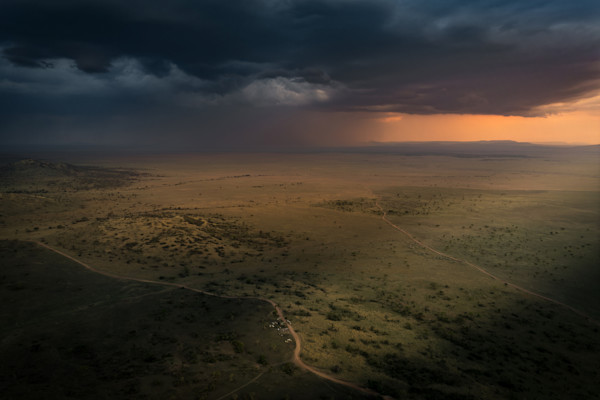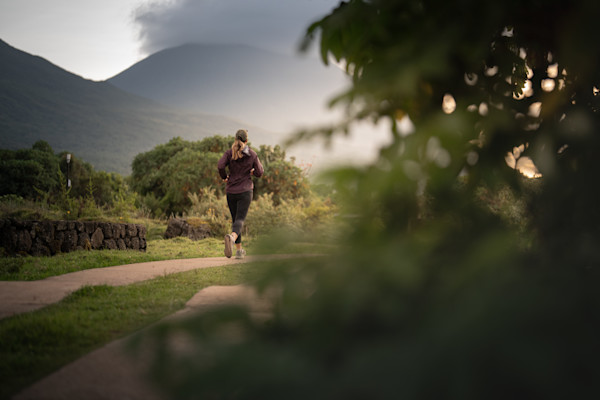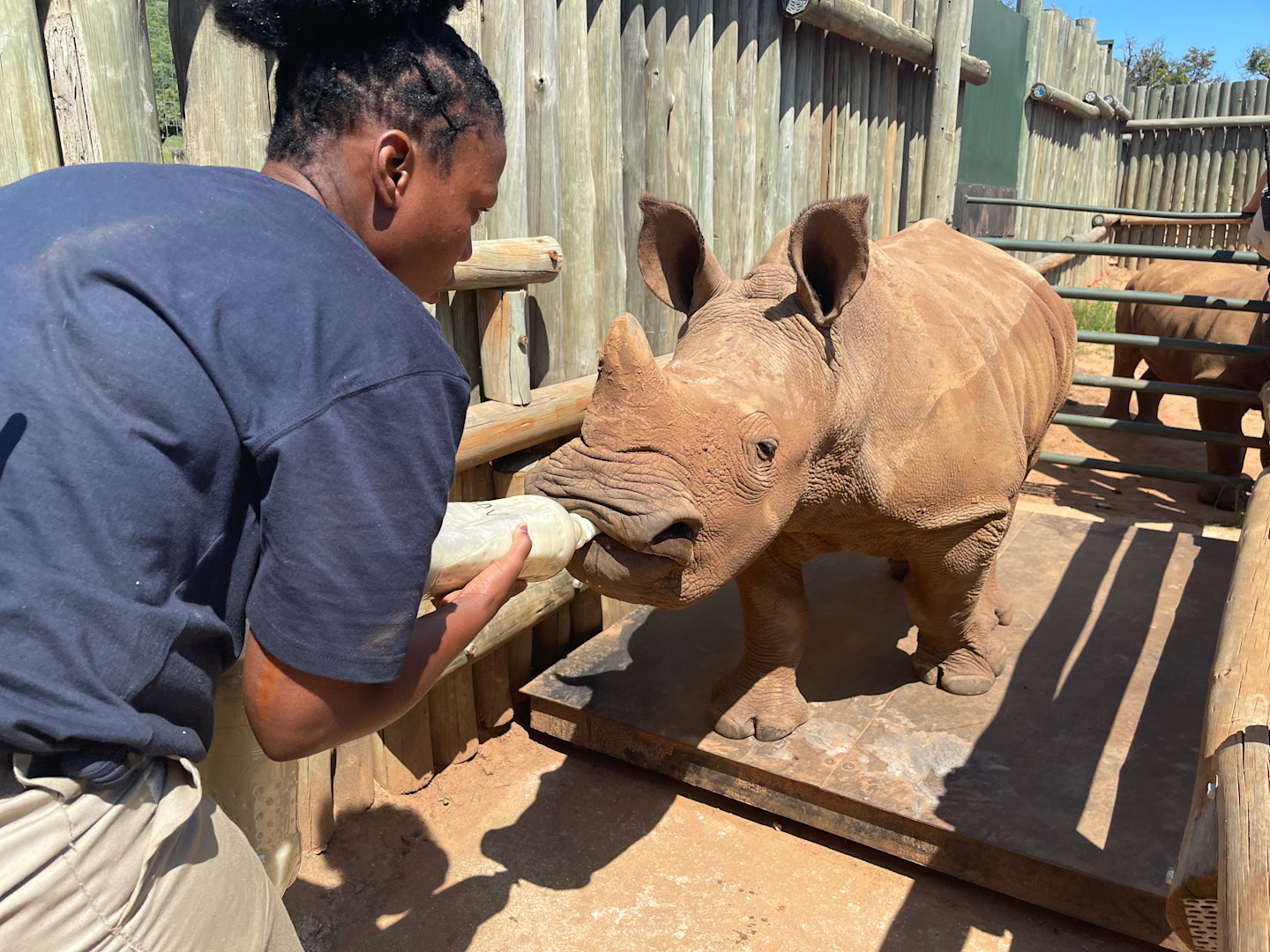
February 2023
Biodiversity
Mavic's journey – the orphan rhino's road to recovery
in BiodiversityShare:
Mavic's journey – the orphan rhino's road to recovery
Conservation is by its very nature a long-term commitment, beset by challenges and filled with hurdles. But its success stories – a result of the collaboration and commitment of organisations and individuals working towards the same goals – offer the inspiration and impetus to never give up hope.
The story of Mavic the orphan rhino is one of those stories that reminds all those who work so tirelessly on the ground and on the front lines that what they do matters. After a tragic poaching incident in August 2022 left a 7-month-old rhino calf stranded for three days – alone and vulnerable – a complicated and heroic operation by the Sabi Sand Nature Reserve in South Africa saw him rescued and taken to Care for Wild Rhino Sanctuary (a sanctuary that focuses specifically on orphaned rhino, a tragic consequence of the scourge of poaching in this region).
Since his arrival, he’s embarked on the road to rehabilitation, rewilding and his eventual release. For the many who have supported him, and who have become invested in his recovery, we bring an update of his progress.

Mavic was orphaned through poaching at seven months old, rescued in the Sabi Sand and taken to Care for Wild Rhino Sanctuary
Mavic’s inspiring journey so far
Mavic came to Care for Wild Rhino Sanctuary on 31 August 2022, a victim of the cruel and unrelenting poaching crisis which has seen so many young rhinos become orphaned. But despite his traumatic arrival to the sanctuary, an extensive network of caregivers, hard work and the dedication of the Care for Wild team has seen him progress from ICU and join his very own group of similarly aged orphans.
The sanctuary reports that in the early days, Mavic was extremely nervous and unsure and relied heavily on the support of his caregivers. Over time he has however gained confidence and happily started to form close bonds with fellow orphans Jock and Aquazi. Mavic is now around 12 months old. His carers say he is developing into a cheeky, fun-loving calf who is not afraid to chase them around. He drinks 16 litres of milk a day (which he will continue to drink until the age of 16 to 17 months old) and is grazing on natural grasses and supplementary teff, lucerne and pellets.
As Mavic is still young and in the early phases of rehabilitation, he remains under continuous observation. Calves as young as Mavic are weighed weekly – an important indicator of health as it can be challenging to establish weight loss in a rhino from observation alone (and by the time loss of condition is visible, the calf could have already deteriorated dramatically). The routine weighing of each rhino allows caregivers to monitor their growth and development. As of January 2023, Mavic weighed 529kg – which is not far behind his friend Aquazi who weighs 590kg. Hugely inspiring and encouraging progress, given his weight on arrival was a ‘light’ 326kg.
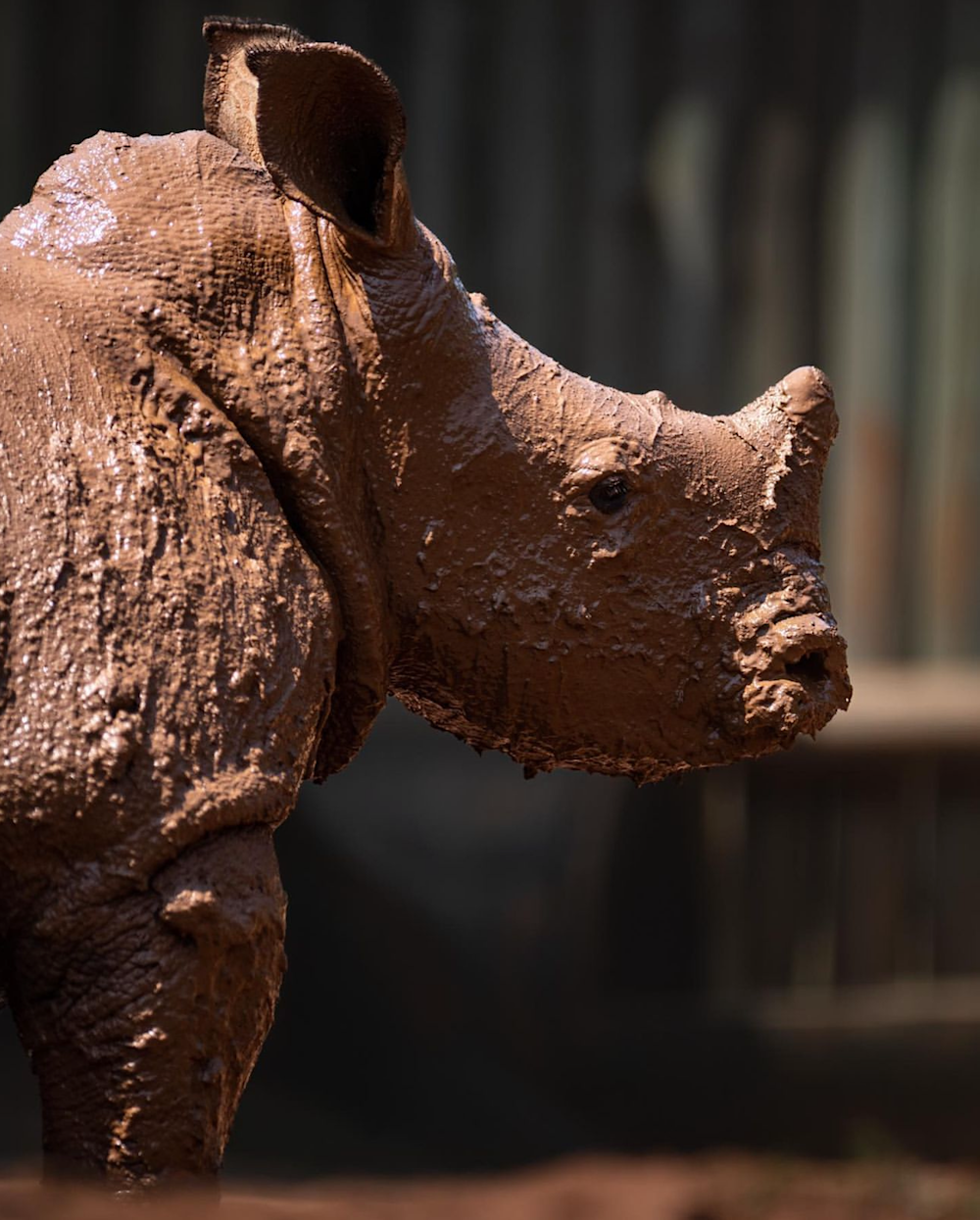
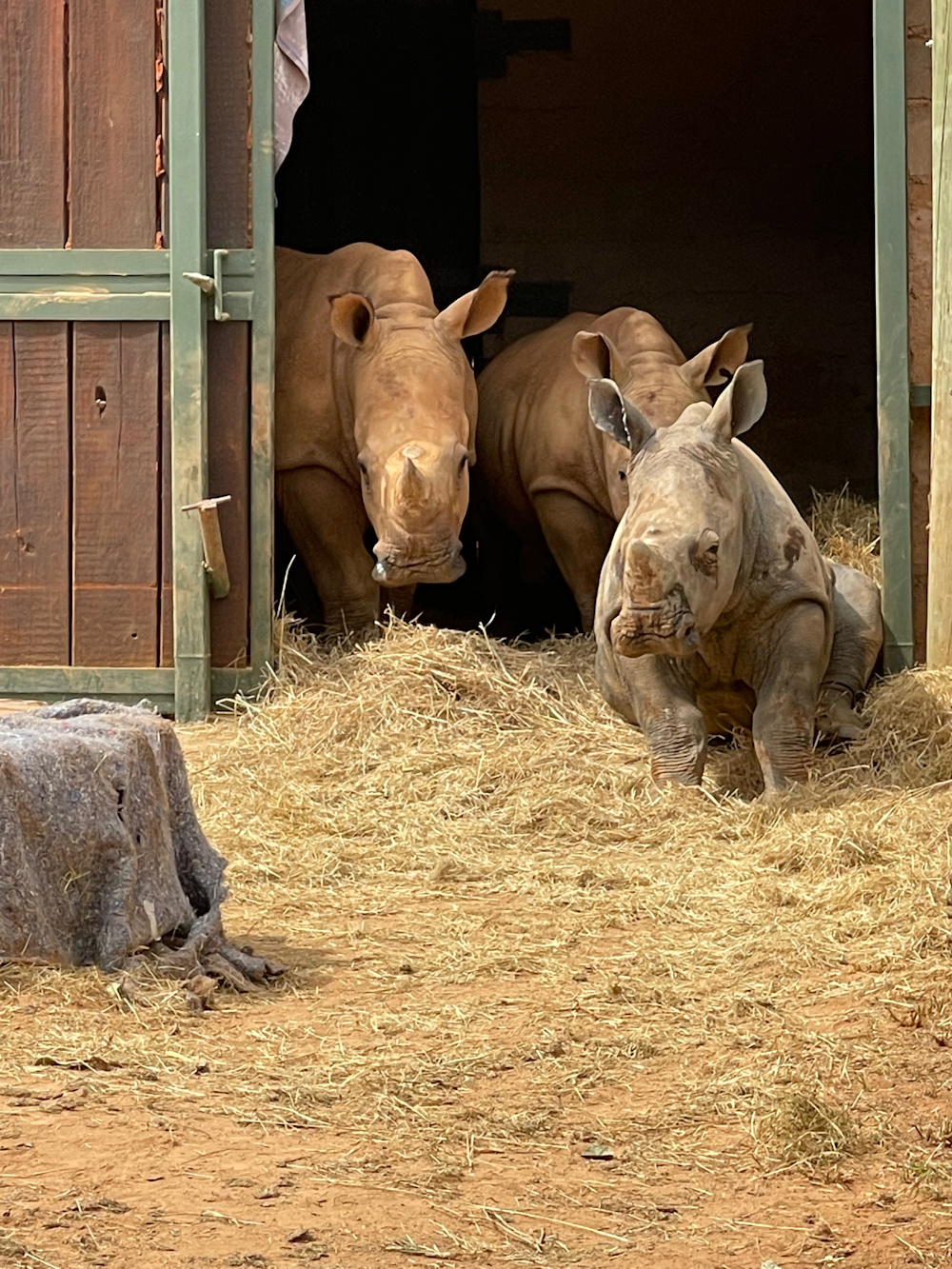
Since his arrival to the sanctuary, Mavic has grown in size and confidence as his health recovers, thanks to the dedication of his caregivers
Every rhino matters
The importance of the work being done by organisations like Care for Wild cannot be overstated. As the largest orphaned rhino sanctuary in the world, it specialises in the rescue, rehabilitation, rewilding, release and protection of black and white rhinos, a crucial and sadly much-needed conservation function that ensures every precious individual has a fighting chance.
To do this requires the support of many, as well as the building of long term relationships that benefit both the humans and wildlife that share the wilderness. Together with partners, Care for Wild is not only caring for the many rhinos left in need as a result of poaching, but simultaneously empowering local, rural communities with sustainable solutions to socio-economic issues – which directly and indirectly reduce the instances of human wildlife conflict and poaching over time.
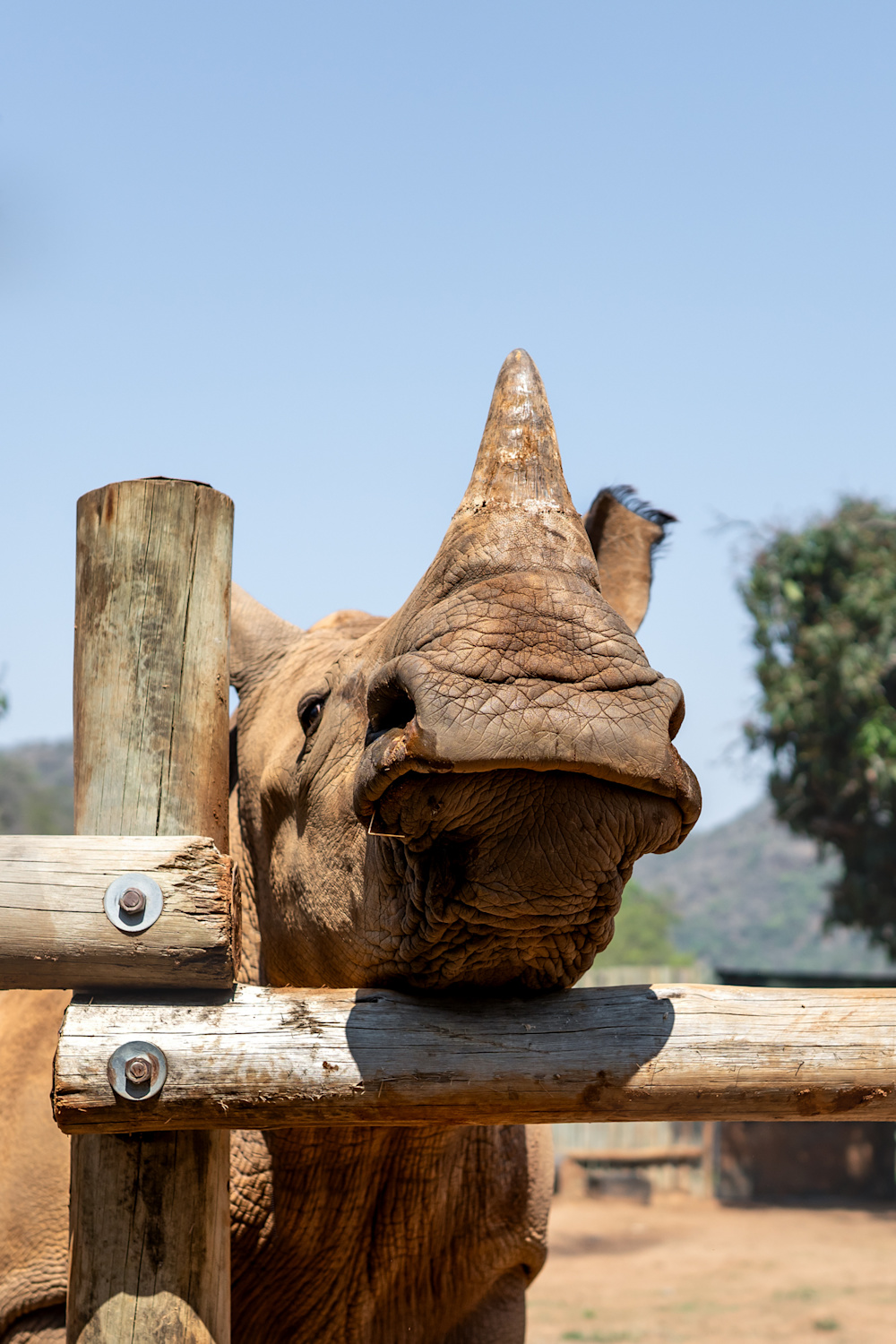
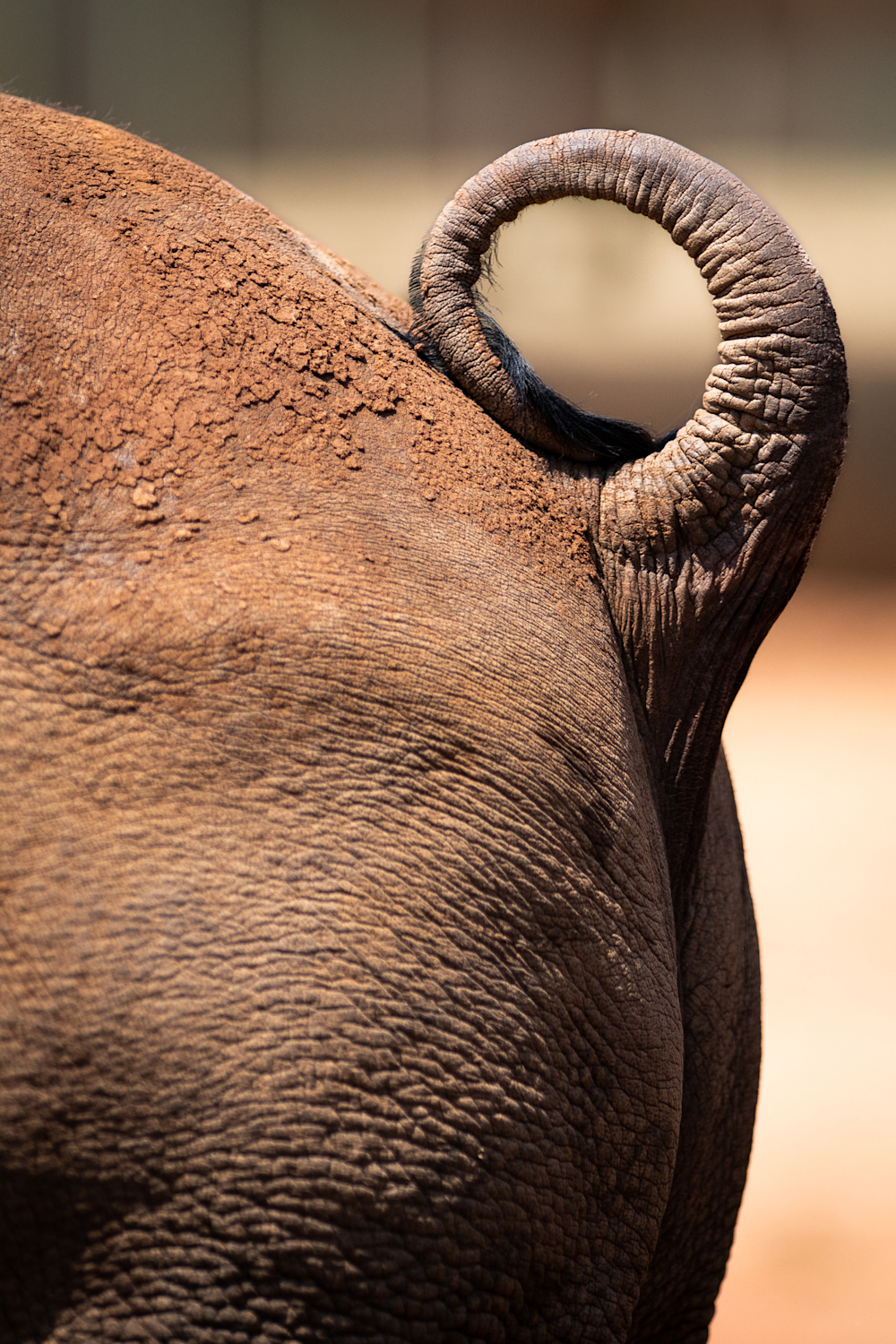
Organisations like Care for Wild play a crucial role in preserving and protecting as many precious rhino lives as possible
Care for Wild has built strong partnerships and relationships with local communities and its community projects support youth employment; economic development; food security and improved nutrition; training and skills development; as well as creating opportunities for communities to fulfil their responsibilities as custodians of the environment.
This long-term vision requires substantial resources, and without the support of donors, sponsors and partners, and without passionately run, protected places such as Care for Wild, the fight for the survival of this species will be lost.
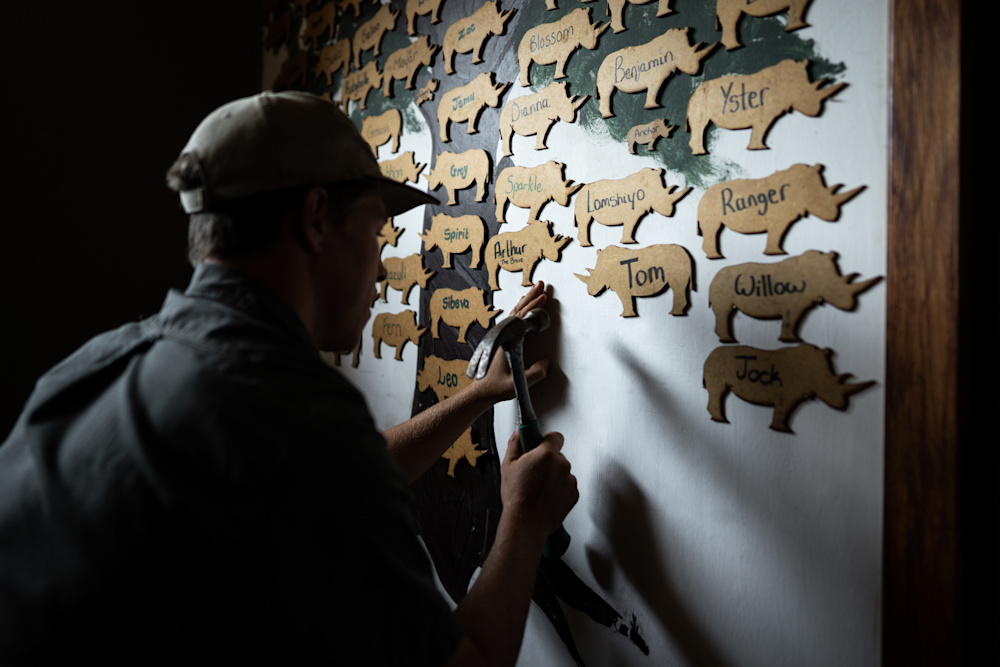
Committed to the care of rhino, and other vulnerable species, Singita Lowveld Trust, Care for Wild and other organisations like them rely on the invaluable funds raised by individuals and organisations
Preparing for the future
Singita Lowveld Trust (SLT), our non-profit partner in South Africa, has committed to sponsoring the full five years of Mavic’s care until his release. Through various fund-raising initiatives, and the generous support of like-minded and passionate conservation advocates – from individual guests to donors and organisations – the SLT has raised almost the full funding requirement needed to look after him during the course of his care.
Unfortunately, Mavic won’t be the last to need our help, and the protection of others like him will require ongoing support. You can find out more about how to contribute to SLT’s various rhino conservation initiatives here, from our dedicated anti-poaching team and their daily efforts to stay one step ahead of poaching, to the rescue and rewilding of young rhinos like Mavic.

By Julia Freemantle
Author
